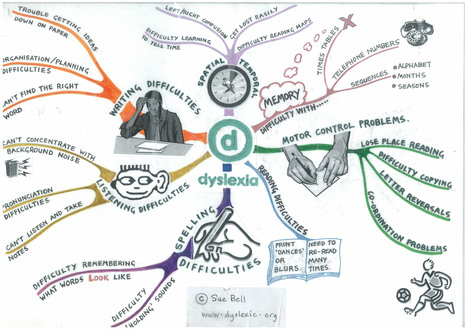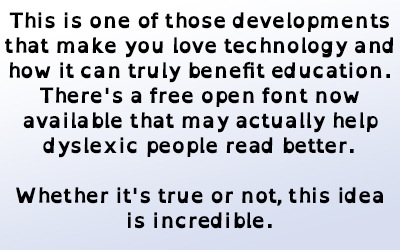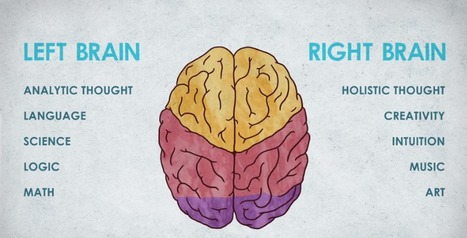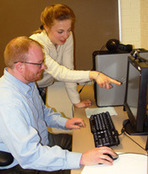Imagine trying to read a sentence when every other word looks like made-up gibberish. It’s exhausting to read the sentence over and over again, trying to put together the meaning. That one troublesome sentence is followed by another… and another… and another… You know it’s not your fault – it’s the text doesn’t make sense. …
Research and publish the best content.
Get Started for FREE
Sign up with Facebook Sign up with X
I don't have a Facebook or a X account
Already have an account: Login
Tech tools that assist all students to be independent learners & teachers to become better teachers
Curated by
Beth Dichter
 Your new post is loading... Your new post is loading...
 Your new post is loading... Your new post is loading...
|

Heather MacDonald's curator insight,
September 23, 2013 11:20 AM
I love these kinds of advances. For those of us who know of people who've struggled with language learning challenges this is a great discovery. Language leaning problems create way too many other personal and social problems for children who then grow to be adults with problems unless they are diagnosed and helped. Way to go Smithsonian researchers!
LS5043-2014's curator insight,
November 6, 2014 6:34 PM
Important evidence re: usefulness of e-readers to underserved library populations. |


















very worthwhile! Did you know that th earliest sign of dyslexia is difficulty telling right from left? and that the kids will blithely interchange hands, not even knowing that they're doing it?